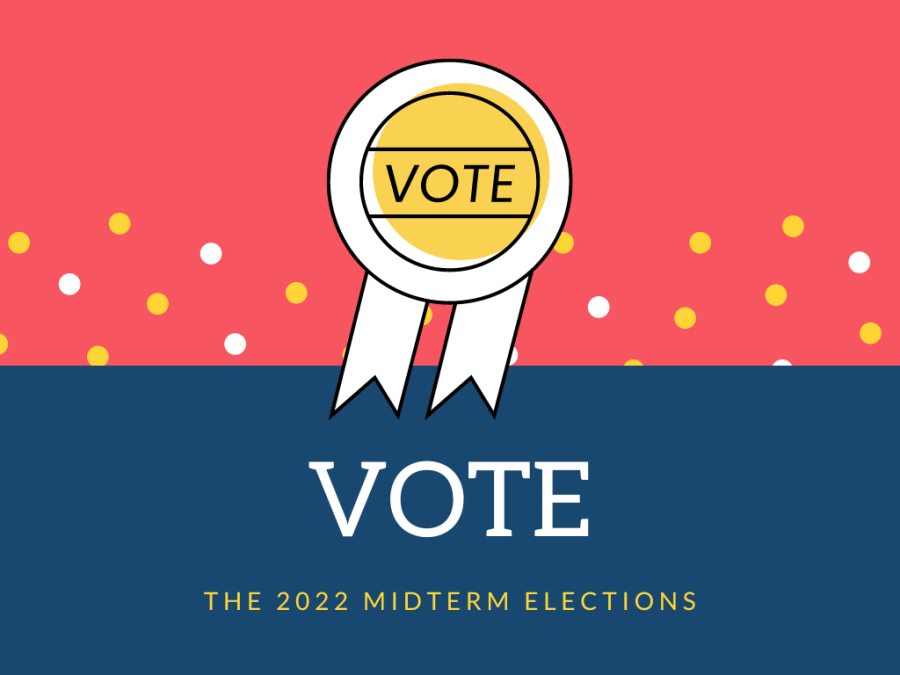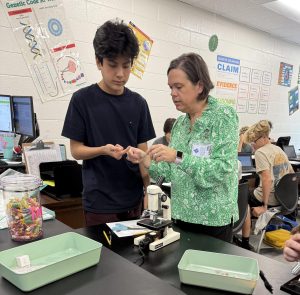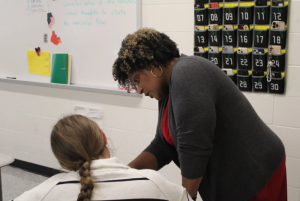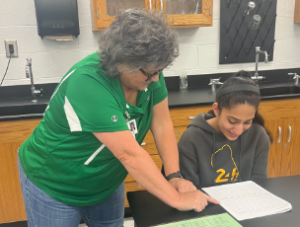Georgia’s battle for the Senate
Since none of the Senate candidates earned 50% of the vote, a runoff election is scheduled for Dec. 6
Graphic designed on Canva by Luke Soule on the Georgia midterm elections
Nov 29, 2022
The Georgia midterm elections took place on Tuesday, Nov. 8, 2022, and since neither of the candidates for the Senate reached at least 50% of the votes in Georgia, the battle for control of the Senate position has begun. When one of the candidates in an election do not reach at least 50% and one of the overall votes, a second election called a runoff election takes place in order to elect one of the two candidates. This means that incumbent Democrat Raphael Warnock and Republican former UGA football player Herschel Walker are vying for the Senator spot. Early voting opened Nov. 28 and the runoff election will take place Dec. 6.
According to “Georgia U.S. Senate Election Results” by the New York Times, Raphael Warnock received 49.4% (1,943,737) of the votes, and Herschel Walker gained a total of 48.5% (1,907,272) of the votes, leaving Independent candidate Chase Oliver with 2.1% (81,278).
According to the New York Times article, “As U.S. Moves On From Elections, Georgia Gears Up for Another One,” Warnock had 49.4 percent of the vote and Walker had 48.5 percent, a difference of about 35,000 votes.
Although early voting is required to begin in every county by Nov. 28, places in Georgia allowed early voting to begin the Saturday after Thanksgiving.
According to Vote.org, which is the “largest 501(c)(3) nonprofit, nonpartisan voting registration and get-out-the-vote (GOTV) technology platform in America,” “If no candidate gets a majority of the votes in the general election (50% +.01), The runoff will be on December 6, 2022.”
As one of two structures in the Georgia Legislature, the state Senate’s responsibilities include writing and passing legislation, approving presidential appointments and ratifying treaties with foreign countries.
According to georgia.gov, “Composed of 56 members elected every two years, the Georgia Senate meets over a non-consecutive 40-day period beginning in mid-January to set the state’s annual operating budget and to create and amend a variety of laws on topics ranging from healthcare to public safety.”
The other structure in the Legislature, the House of Representatives, presents amendments and starts the legislation process.
According to georgia.gov, “With its 180 members from districts across the state, the House of Representatives is the larger of the two chambers of the General Assembly. Its members serve two-year terms and each January convene to set the state’s annual operating budget and address state priorities from agricultural development to tax policy.”
The seats won include nine Republican seats claimed and five Democratic seats claimed. The winners include Buddy Carter, Sanford Bishop, Drew Ferguson, Austin Scott, Rick Allen, Mike Collins, Andrew Clyde, Lucy McBath, David Scott, Marjorie Taylor Greene, Barry Loudermilk, Rick McCormick, Hank Johnson and Nekema Williamson in their specified districts.
The Governor is the state manager that implements state laws, views and implements executive decisions.
According to georgia.gov, “The governor shall ‘take care that the laws are faithfully executed and shall be the conservator of the peace’ in the state. This power to enforce laws is almost identical to that of the president of the United States. He or she has the power to veto legislation, although the Georgia General Assembly can override the governor’s veto with a two-thirds majority in each chamber.”
Gubernatorial candidates were Democrat Stacey Abrams, Libertarian Shane Hazel and incumbent Republican Brian Kemp. According to information posted on Nov. 28 by Politico.com, Kemp took the position with 53.4% (2,110,328) of the votes, beating out Abrams with 45.9% (1,811,471).
More elections took place Nov. 8, including other state-wide legislature elections. People ages 18 and older are able to vote via the county drop box, early voting locations and their assigned polling locations.











